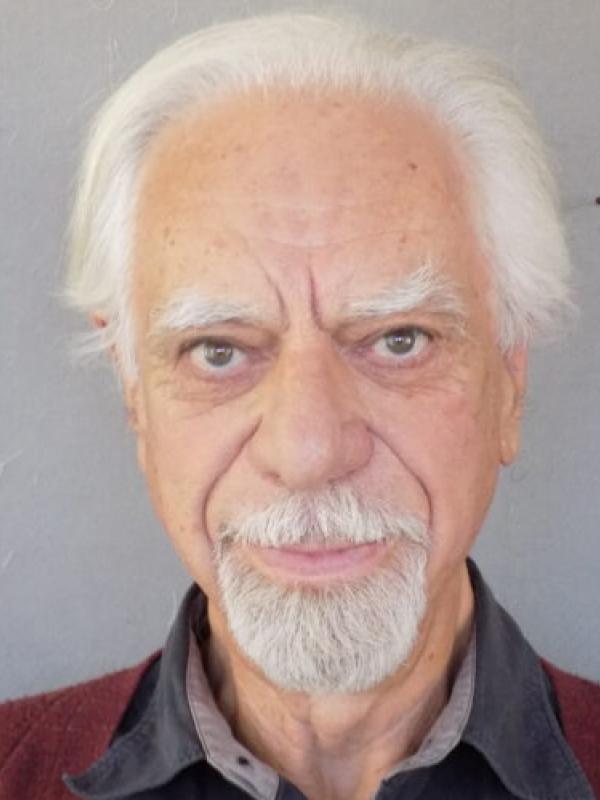Areas of Expertise
- Early Modern European History
- Power, Culture, and the State
- Race, Ethnicity, and Nation
Although my teaching ranges widely, from the civilization of ancient Mesopotamia to the age of Galileo and gunpowder, I am primarily a social historian of early modern England. I am interested in all aspects of the society, culture, religion and politics of England under the Tudors and Stuarts, from the late fifteenth to the early eighteenth century. I treat English history as part of British and European history, and I have long been interested in the British abroad, including adventurers and settlers across the Atlantic. I was born and educated in England, and received four degrees from the University of Cambridge. I came to the United States on a two-year teaching contract, before I finished my Ph. D., and have been here ever since. I am a naturalized U.S. citizen. I taught at liberal arts colleges in California, and at California State University, Long Beach, before joining the Ohio State University History Department in 1998. Before obtaining emeritus status, I served as Humanities Distinguished Professor of History and George III Professor of British History.
My publications indicate my range of interests. They include Literacy and the Social Order: Reading and Writing in Tudor and Stuart England (Cambridge University Press, 1980); Coming Over: Migration and Communication between England and New England in the Seventeenth Century (Cambridge University Press, 1987); Bonfires and Bells: National Memory and the Protestant Calendar in Elizabethan and Stuart England (University of California Press, 1989); Religion and Society in Early Modern England (with Lori Anne Ferrell, Routledge, 1996); Birth, Marriage and Death: Ritual, Religion and the Life Cycle in Tudor and Stuart England (Oxford University Press, 1997); Travesties and Transgressions in Tudor and Stuart England: Tales of Discord and Dissension (Oxford University Press, 2000), republished as Agnes Bowker's Cat: Travesties and Transgression in Tudor and Stuart England (Oxford, 2001); Society and Culure in Early Modern England (Ashgate, 2003);England on Edge: Crisis and Revolution 1640-1642 (Oxford University Press 2006; and Dangerous Talk: Scandalous, Seditious and Treasonable Speech in Pre-Modern England (Oxford, 2010). Driving these books is my curiosity about the relationships of central and local authority, elite and popular culture, official and unofficial religion, and ordinary men and women. I have also written articles about kinship, book-burning, cross-dressing,saltpeter, and the man in the moon.
Literacy and the Social Order: Reading and Writing in Tudor and Stuart England (Cambridge University Press, 1980), Coming Over: Migration and Communication between England and New England in the Seventeenth Century (Cambridge University Press, 1987), Bonfires and Bells: National Memory and the Protestant Calendar in Elizabethan and Stuart England (University of California Press, 1989), Religion and Society in Early Modern England (with Lori Anne Ferrell, Routledge, 1996), Birth, Marriage and Death: Ritual, Religion and the Life Cycle in Tudor and Stuart England (Oxford University Press, 1997), Travesties and Transgressions in Tudor and Stuart England: Tales of Discord and Dissension (Oxford University Press, 2000) republished as Agnes Bowker's Cat: Travesties and Transgression in Tudor and Stuart England (Oxford University Press, 2001), Society and Culure in Early Modern England (Ashgate, 2003), and England on Edge: Crisis and Revolution 1640-1642 (Oxford 2006). Birth, Marriage and Death won the John Ben Snow Prize of the North American Conference on British Studies(1998) and the Philip Schaff Prize of the American Society for Church History(1999).
Based on research in more than forty archives, England on Edge examines political uncertainty, religious instability, and the disintegration of the established ancien regime on the threshold of the civil wars. It argues that 1640-42 saw the beginnings of a complex revolution with constitutional, political, religious, social, cultural, and popular dimensions, and that the collapse of that revolution, the contradictions within it, and the failure of parliamentary leaders to contain it, was a primary cause of the outbreak of civil war. Cressy's most recent study, Dangerous Talk: Scandalous, Seditious and Treasonable Speech in Pre-Modern England, includes analysis of popular political conversation, subjects and citizens, and the relationship of governors and governed from the fifteenth to the nineteenth centuries. He is also interested in university culture, the social history of the early Stuart era, and seventeenth century notions of the man in the moon. -->

